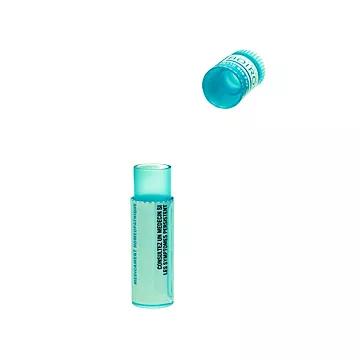





Homeopathy is a natural healing method based on the principle of similitude, whereby a substance that causes symptoms similar to those of disease in a healthy individual can be used to treat that disease in a sick individual. This therapeutic approach is increasingly used to treat a wide range of conditions, including bronchitis, bronchiolitis and lung diseases.
Bronchitis is inflammation of the bronchi, the tubes that carry air to the lungs. They can be acute or chronic, and are often caused by respiratory infections such as colds or flu. Symptoms of bronchitis include a persistent cough, breathing difficulties, headaches and fever.
In the treatment of acute bronchitis, homeopathy can be used alone or in conjunction with conventional treatments such as antibiotics. Depending on the symptoms presented by each patient, different homeopathic medicines can be prescribed. For example, Bryonia is often used for dry, irritating coughs, while Pulsatilla is often recommended for oily coughs and profuse sputum.
In the case of chronic bronchitis, homeopathy can be used as a background treatment to boost the immune system and help prevent relapses. Phosphorus is often recommended for dry coughs and breathing difficulties, while Ferrum phosphoricum is often used to boost the body's defences and prevent recurrent respiratory infections.
Pulmonary pathologies, such as asthma or COPD (chronic obstructive pulmonary disease), are chronic diseases affecting the lungs and bronchi. They are often caused by environmental factors such as air pollution and smoking, and are characterized by breathing difficulties, persistent coughing and shortness of breath.
Bronchitis is an inflammation of the bronchial tubes, manifested by a cough accompanied by sputum.
This very common disorder can be divided into two types: acute bronchitis and chronic bronchitis.
Inflammation makes breathing more difficult, as the bronchial walls become swollen and produce large quantities of mucus. Homeopathy has several weapons at its disposal to combat respiratory problems and bronchitis naturally.
When the cough is oily, our pharmacists recommend taking Aviaire 9 CH, 1 single dose systematically at the start of treatment, 4 to 6 times a day, depending on the intensity of symptoms;
Depending on associated symptoms, take 5 granules of :
Bronchiolitis is an inflammation of the bronchioles of the lungs that affects children under the age of two every winter. Very often caused by a virus better known as the respiratory syncitial virus, bronchiolitis is a contagious disease that begins with a cold, then leads to spasmodic episodes of coughing and bronchial congestion, sometimes accompanied by sibilance. In extreme cases, this acute respiratory condition may require hospitalization if symptoms persist and worsen. However, when treated in time, the disease progresses fairly rapidly, usually disappearing within a week. Bronchiolitis must be treated with physiotherapy sessions designed to clear the airways by draining accumulated mucus. However, better results can be achieved with homeopathic treatment, which helps to clear the bronchial tubes while limiting the risk of recurrent bronchiolitis.
As soon as the first symptoms appear, infants and young children should be given 5 granules of Blatta orientalis 5 CH and 5 granules ofIpeca 7 CH every hour, until the intensity of the attack gradually diminishes. When symptoms begin to subside, it will be necessary to adapt the dosage, gradually reducing the frequency of doses. In the case of respiratory physiotherapy, it may be possible to optimize the drainage achieved during the sessions by using remedies based onAntimonium tartaricum or Drosera rotundifolia.
In terms of prevention, the remedies traditionally recommended are generally based on Calcarea carbonica ostrearum,Aviaire or Sulfur Iodatum. However, since preventive treatment of bronchiolitis is above all a background treatment, it is up to the homeopathic doctor to adapt the prescription to prevent the onset of new attacks.
As soon as the illness begins, it's imperative to consult a doctor, so that he or she can assess the seriousness of the situation and decide on the best course of action. Although homeopathic treatment brings significant improvement in the vast majority of cases, it is essential to seek the advice of a medical professional to prevent any possible worsening. Similarly, if symptoms persist and worsen after the consultation, it is particularly important to have a second consultation toavoid any risk of respiratory distress.
Homeopathy can be used in conjunction with conventional treatments to alleviate the symptoms of these conditions and improve patients' quality of life. For example, Arsenicum album is often used for acute asthma, while Sambucus nigra is often recommended for wet coughs and breathing difficulties.